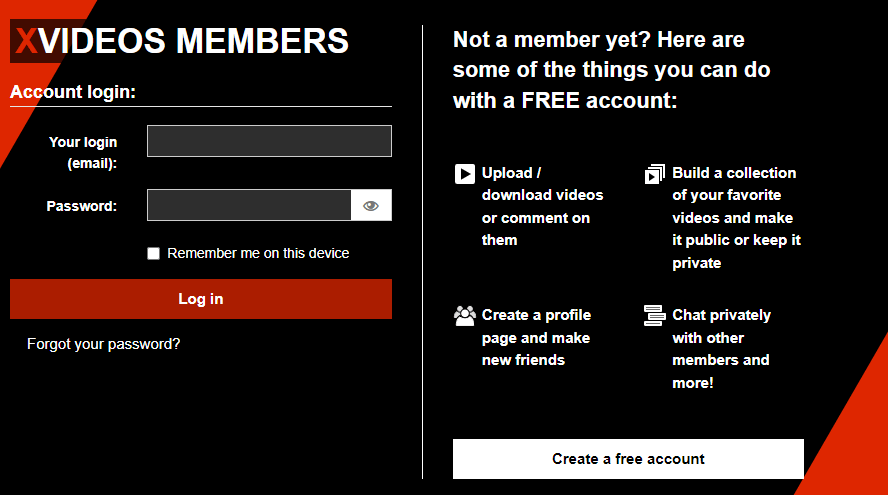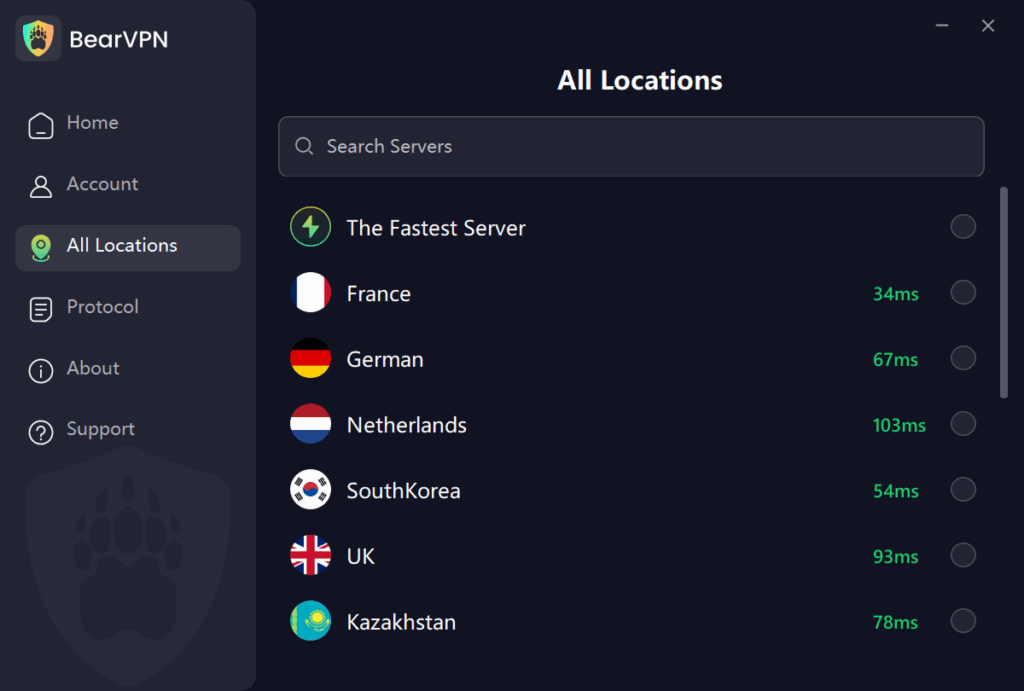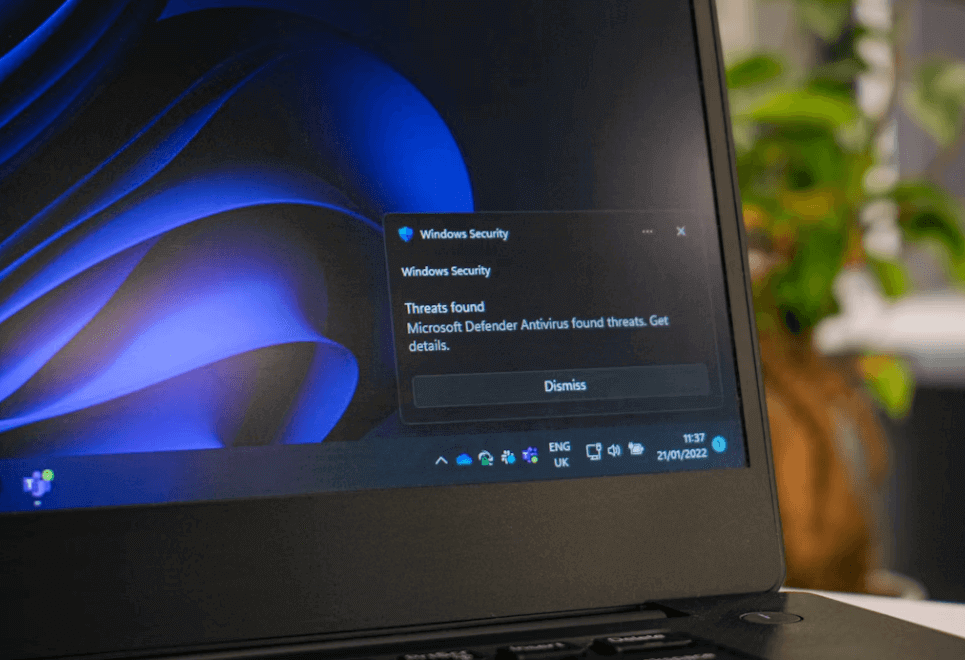Xvideos has become a household name in online adult entertainment. As of 2025, it ranks among the most visited websites in the world, drawing hundreds of millions of people every month. For many, it’s the first site that comes to mind when thinking about free adult content. But with this immense popularity comes a recurring question: “Is Xvideos safe?”
In 2026, the primary threat is no longer just a simple “porn virus.” The landscape has shifted toward mandatory age verification (AV) laws, AI-driven sextortion scams, and aggressive ISP data harvesting. This guide provides a comprehensive look at the current risks and the precise steps you must take to browse anonymously.
What Is Xvideos and Why People Ask If It’s Safe
Founded in 2007, Xvideos has grown into one of the world’s largest adult video platforms, consistently ranking among the top 20–50 websites globally. It hosts billions of video views every month, making it a giant in the adult entertainment industry.
So why do people wonder, “Is Xvideos safe?”
- Porn viruses – Many people have heard horror stories of computers or phones being infected by “porn viruses” after visiting adult sites.
- Malicious ads – Adult sites often rely heavily on advertising. Some of those ads can be deceptive or malicious.
- Privacy concerns – Watching adult content is a private matter. Many people are concerned that their ISP, advertisers, or even hackers may be able to track their activity.
- Scams & fake sites – The popularity of Xvideos means that copycat or fake sites often exist, designed to scam or infect users.
The reality is that while Xvideos itself is not a scam site, it’s the environment around it (ads, pop-ups, trackers) that introduces risks.
Why the Risks Have Changed
Historically, users feared their devices getting “infected” by clicking a bad banner. While adult site malware still exists, modern browsers like Brave and Firefox have become significantly better at sandboxing these threats.
Today, the real danger is Identity Attribution. In 2026, your browsing isn’t just a local history issue; it’s a legal and privacy one. The “safety” of a site like XVideos is now measured by how well you can separate your real-world identity from your online preferences.
Is Xvideos Age Verification Safe?
The biggest shift in 2026 is the mandatory digital ID requirement. While checking a “yes or no” box used to be the industry standard, it is now an illegal practice in many major jurisdictions.
- United States: Following the precedent of the SB 197 Texas porn law and similar bills, over 25 states (including Florida, Louisiana, and Virginia) now mandate “robust age verification.” This often requires users to upload a government-issued driver’s license or use biometric facial age estimation.
- United Kingdom: The Online Safety Act (OSA) is now in full enforcement as of late 2025. UK users are frequently met with aggressive “age gates” that demand credit card details, open banking access, or third-party digital ID checks via providers like Yoti.
The Risks: Why Verification Isn’t “Safe”
When you verify your age, you are introducing three major security vulnerabilities to your personal life:
1. The “Honey Pot” Effect (Data Breaches)
Third-party verification companies store massive amounts of sensitive data. In 2026, these databases are prime targets. If a breach occurs—like the 2025 “Tea” leak—a hacker can link your real name and address to your adult viewing history. This is a goldmine for AI-powered sextortion attempts.
2. Biometric Harvesting
Many AV systems use “Facial Age Estimation.” This involves taking a selfie or video analyzed by AI. While companies claim to delete the data, there is a risk of this biometric data being used to train AI models or stored in “Shadow IT” backups without your explicit consent.
3. Identity Tracking & “Linkability”
Even if the adult site doesn’t have your name, the verification token created by the third-party service can sometimes be tracked across multiple platforms. This creates a “digital dossier” of your private habits that could potentially be accessed by data brokers.
Is Xvideos Safe and Legal
This shift toward mandatory identification brings us to the broader question: is Xvideos actually safe—and is it still legal—to use in 2026? The answer is no longer a simple “yes.” While Xvideos remains a legally operating platform for adults in most jurisdictions, the “safety” of your visit is now split into two distinct battles: the safety of your identity (protecting your ID from leaks) and the safety of your device (protecting your hardware from infections).
Even if you successfully navigate the new legal age gates, you are entering a digital ecosystem that is notoriously difficult to moderate. To be fair, the Xvideos platform itself does not directly inject viruses into your computer or phone. However, the third-party infrastructure that sustains the site—specifically its massive advertising networks—remains a technical minefield. To stay fully protected, you must defend against the malware threats that have evolved in complexity alongside these new privacy laws.

1. Malware & Malicious Ads
Many people assume that porn sites are breeding grounds for viruses. Historically, this fear was justified. Malicious actors have long used adult websites to spread malware through deceptive ads, fake “download” buttons, and forced redirects. On Xvideos, the main risk isn’t the video content itself but the advertising ecosystem.
- Some ads may lead to malvertising networks: websites that attempt to install spyware or trojans.
- Others mimic legitimate updates (“Your Flash Player is out of date — click here”), tricking users into installing malware.
- Even an accidental click on a pop-up can open a chain of redirects to shady domains.
While Xvideos is safer than unknown porn sites, its reliance on third-party ads means the danger of exposure to malware is still present. This is why ad-blockers and antivirus software are frequently recommended for adult browsing.
2. Spyware, Scams & Sextortion Attempts
Another common fear is receiving threatening pop-ups or emails claiming the site has “hacked your webcam” and recorded you. These are known as sextortion scams. They usually demand money (often in cryptocurrency) to prevent supposed footage from being released.
- Pop-ups may claim: “We’ve caught you watching. Pay us or we’ll tell your contacts.”
- Some phishing emails include old leaked passwords to look more convincing.
- More advanced spyware, if installed through a malicious ad, could in theory access webcams or steal data.
The counterpoint: In most cases, these threats are fake. Hackers generally don’t announce their presence with dramatic warnings. If you see such a pop-up while on Xvideos, it’s almost always a scam designed to scare you into paying.
The reality: The risk isn’t so much that Xvideos itself is running these scams, but that the adult industry is a common target for social engineering attacks. People are more likely to panic because of the sensitive nature of what they’re watching. The safest response is to close the page, clear your cache, and never send money.
3. Data Privacy & Tracking
Even if you never click an ad, simply visiting Xvideos raises privacy concerns. Like most free websites, it collects user data for advertising and analytics. This can include:
- Your IP address and device type.
- Cookies that track browsing behavior.
- Potentially sensitive insights, such as your viewing preferences.
Your ISP (Internet Service Provider) can also see that you visited Xvideos unless your traffic is encrypted. For people in countries with conservative laws or strict employers, this creates anxiety.
The counterpoint: Some argue that this level of data collection is no different than what you experience on mainstream sites like YouTube or Facebook. After all, much of the web runs on ads and trackers.
The reality: While true, adult browsing is far more sensitive. Having your interests in movies or shopping tracked is one thing; having your sexual preferences logged and potentially leaked is far more personal.
4. Legal & Regional Restrictions
In certain regions, access to Xvideos is blocked by ISPs or outright banned by governments. In these cases, attempting to access the site may carry legal risks. Even where it is legal, new rules (like age verification laws) may require you to submit personal information to access adult content — raising new privacy concerns.
For most people in countries where adult content is legal, this isn’t a pressing issue. Xvideos doesn’t require you to log in or pay for content, so casual browsing may feel anonymous.
The legal risk depends heavily on where you live. In some countries, simply trying to access the site could put you on a government watchlist. In others, the biggest concern is who else can see your traffic (such as your ISP). In both cases, a VPN provides a solution by encrypting your connection and helping you bypass restrictions.
How to Browse Xvideos Safely and Anonymously
Understanding the risks is only half the battle — the next step is learning how to reduce or eliminate them. While no method guarantees 100% safety, following best practices makes it far less likely you’ll run into malware, scams, or privacy leaks. Let’s explore the most important protections in detail.
1. Use a VPN (BearVPN)
Perhaps the most effective single step you can take is to use a Virtual Private Network (VPN). A VPN works by encrypting your internet connection and routing it through a secure server, hiding your real IP address.
Your ISP can normally see that you’re visiting adult websites. With a VPN, that traffic is encrypted, and the ISP only sees that you’re connected to the VPN server — not what you’re watching.
Added benefits: A VPN can also bypass geo-blocks (if Xvideos is restricted in your region) and protect you on unsecured public WiFi.
The counterpoint: Some people argue they “have nothing to hide.” While that may be true, adult browsing is highly personal. Even if you don’t fear government surveillance, you may still want to prevent advertisers, employers, or hackers from building a profile of your habits.
Why BearVPN? Unlike some free VPNs that log user activity or throttle speeds, BearVPN emphasizes security and privacy with a no-logs policy, fast streaming, and accessible free and paid plans. That combination makes it especially suitable for streaming-heavy activities like browsing Xvideos.

2. Install an Ad Blocker
The majority of malware risks on Xvideos come from advertising networks. Pop-ups, flashy banners, or “click here” buttons are the main culprits behind infections. Installing an ad blocker can neutralize many of these risks.
- Ad blockers like uBlock Origin, AdGuard, or Ghostery prevent malicious scripts from loading in the first place. That means fewer chances of accidentally clicking a bad ad.
- The counterpoint: Some argue that ad blockers can occasionally interfere with legitimate site features or reduce revenue for free sites. However, when it comes to adult browsing, safety usually outweighs supporting ads.
- Pro tip: If you use BearVPN alongside an ad blocker, you get layered protection — privacy at the network level and safety at the browser level.
3. Enable Incognito or Private Browsing Mode
Incognito mode (also known as private browsing) is a built-in feature in most browsers. It doesn’t make you invisible online, but it does prevent your device from storing history, cookies, and autofill data.
- If you share a computer, incognito ensures your browsing activity isn’t saved locally, reducing the chance of awkward discoveries.
- Others mistakenly believe incognito hides their activity from ISPs or websites.
- Best practice: Use incognito in combination with a VPN. This way, nothing is stored locally, and your traffic is encrypted externally.
4. Keep Antivirus Software & Devices Updated
A strong antivirus program remains one of the best defenses against malware. Coupled with regular updates, it ensures your system can recognize and block new threats.
- Antivirus software can catch malicious downloads, detect trojans, and quarantine suspicious files before they cause damage.
- Updates matter: Outdated systems are prime targets for attackers. Keeping your OS and browser updated closes security holes.
- The counterpoint: Antivirus alone doesn’t prevent tracking or ISP visibility. It protects the device, but not your privacy.

5. Only Use the Official Site
Xvideos is accessible only through its official domain. Fake “mirror” sites and unauthorized apps pose major risks.
- Sticking to the official site ensures you aren’t tricked by clones designed to steal credentials or distribute malware.
- The counterpoint: Some people look for unofficial “apps” or third-party downloaders for convenience. These are almost always unsafe.
- Best practice: Bookmark the official Xvideos site and avoid downloading any “Xvideos app” — especially from Android APK stores or unofficial sources.
6. Clear Cookies & Cache Regularly
Cookies store browsing data, which can include sensitive information about your viewing habits. Clearing them regularly reduces tracking.
- It minimizes the risk of advertisers building a long-term profile of your preferences.
- The counterpoint: Clearing cookies can log you out of sites or reset preferences. While slightly inconvenient, it’s a small price for increased privacy.
- Pro tip: Combine cookie clearing with privacy-focused browsers like Brave or Firefox for even more control.
7. Avoid Clicking Ads or Downloading Files
It may sound obvious, but curiosity clicks are one of the biggest sources of infections. Many Xvideos ads are designed to tempt you into clicking.
- Simply avoiding ads, pop-ups, and third-party downloads cuts your risk dramatically.
- The counterpoint: Some ads may look convincing or mimic official content, tricking even cautious users. That’s why pairing this habit with ad blockers and antivirus software creates a stronger safety net.
Conclusion
Is Xvideos safe? The answer is yes, but only if you are proactive. The site is a legitimate platform, but the 2026 digital environment is hostile toward privacy. Between aggressive ID laws and AI scams, you cannot rely on the site to protect you.
By integrating BearVPN with a hardened browser and staying informed on the latest legal shifts, you can enjoy online entertainment without sacrificing your identity or security.
FAQ
Can you get a virus from Xvideos?
The videos themselves won’t infect you. However, ads, pop-ups, and downloads from outside the site can carry malware. Always use a VPN, ad-blocker, and antivirus.
Is Xvideos safe on mobile (iPhone or Android)?
On iPhone, viruses are rare due to Apple’s security, but you can still encounter phishing pop-ups. On Android, malicious apps or downloads pose a greater risk. Stick to the official site, not apps.
Do I need a VPN to use Xvideos?
You can technically access it without one, but a VPN is highly recommended. It hides your activity from ISPs, prevents tracking, and adds protection against hackers.
Is Xvideos safe to use without a VPN?
It is “safe” from a malware perspective if you have an ad-blocker, but it is not private. Your ISP and the site itself will have a record of your IP address and viewing habits.
Is Xvideos legal to use?
In most countries, viewing Xvideos is legal for adults. However, some countries block porn sites. Always follow local laws.
Does a VPN hide my activity from my ISP?
Yes. A high-quality no-logs policy VPN like BearVPN encrypts your traffic so the ISP only sees that you are connected to a VPN server, not the specific videos you are watching.



